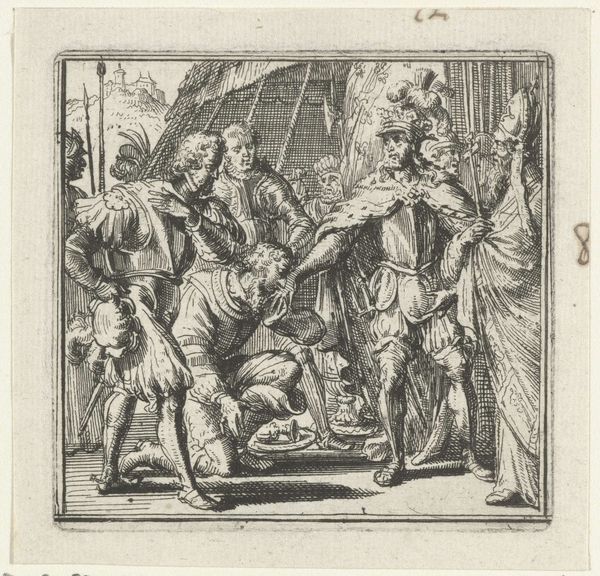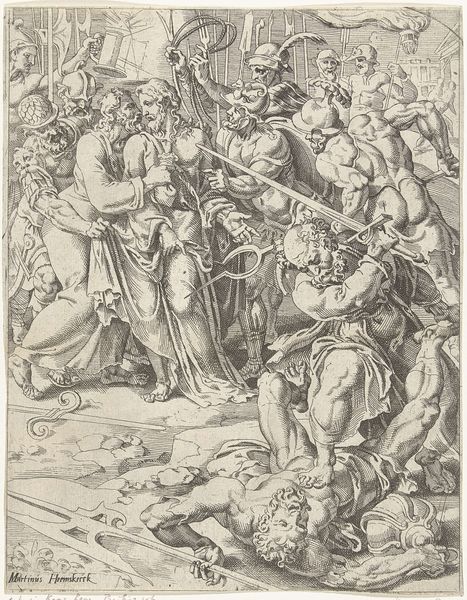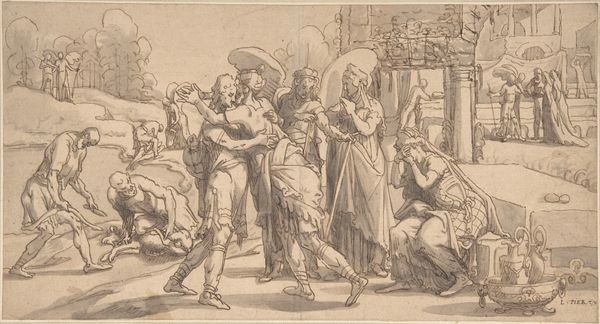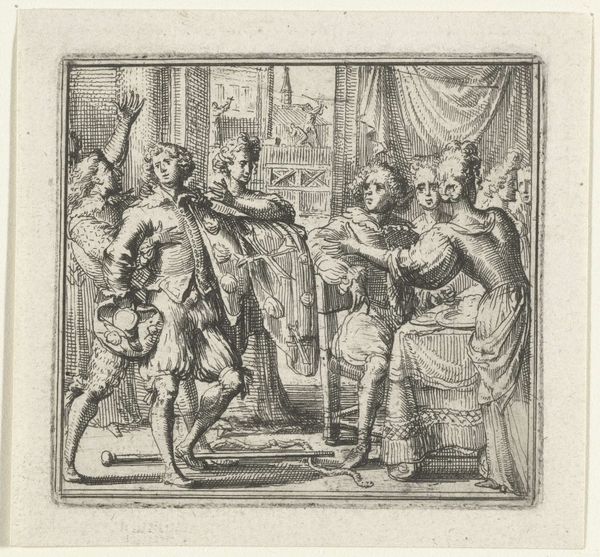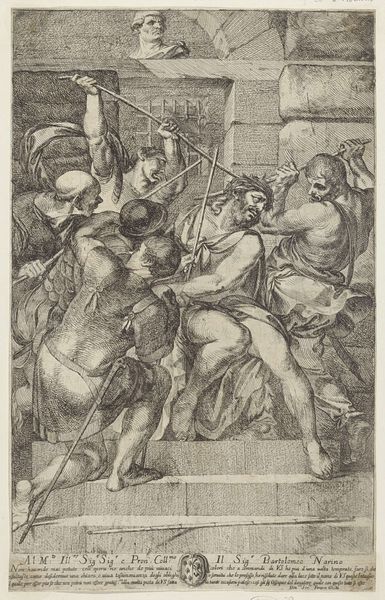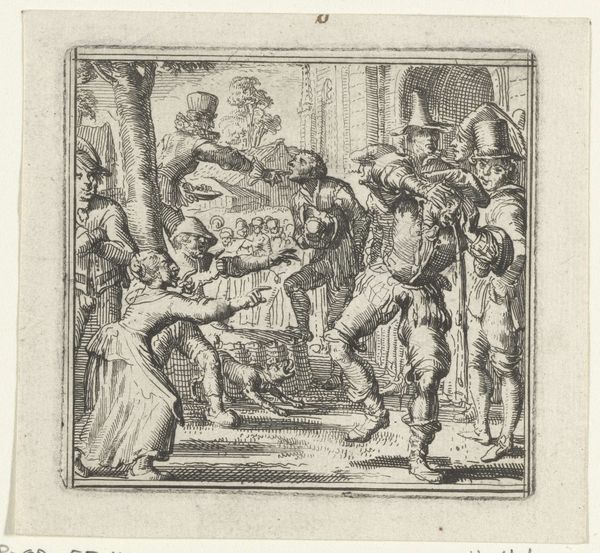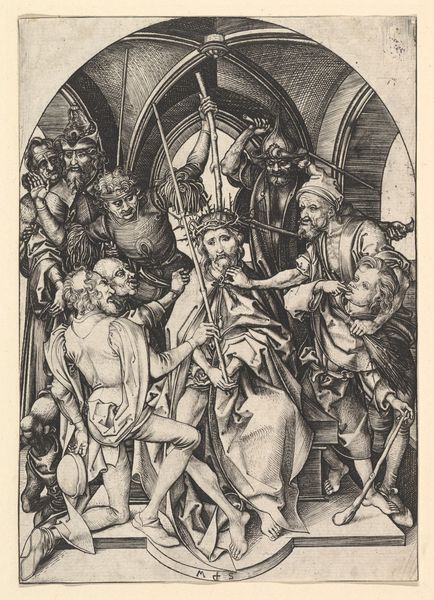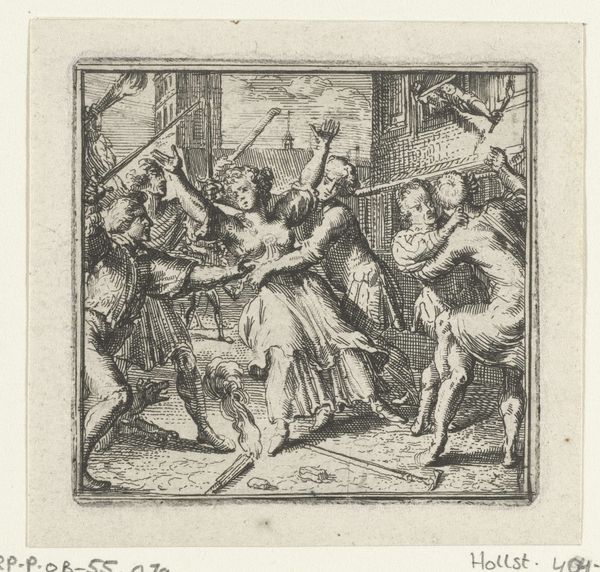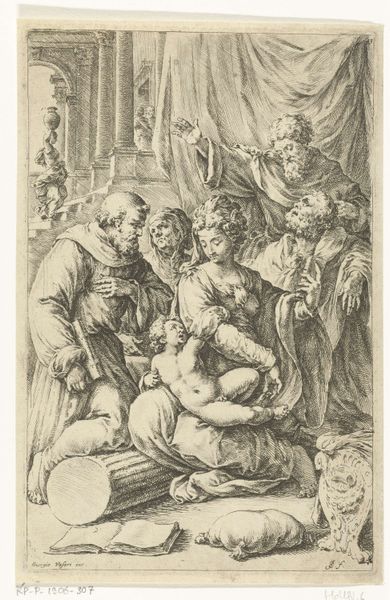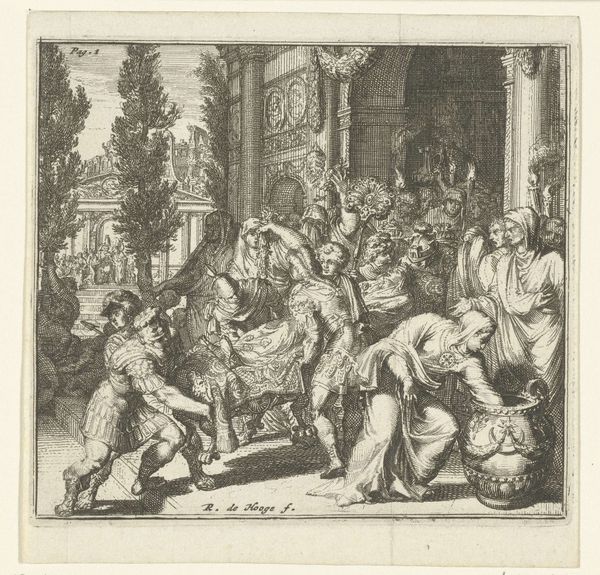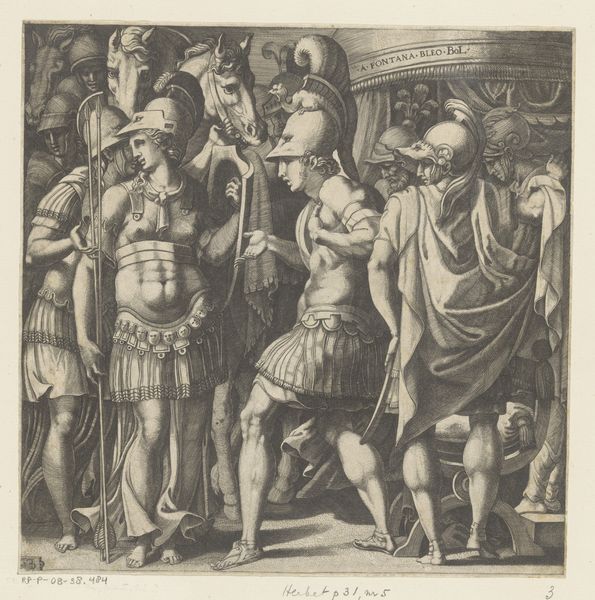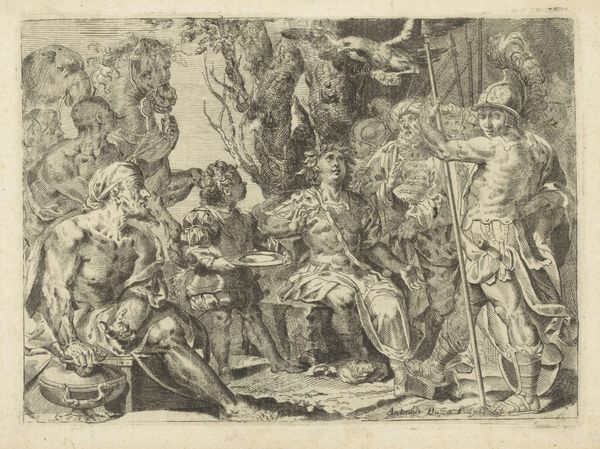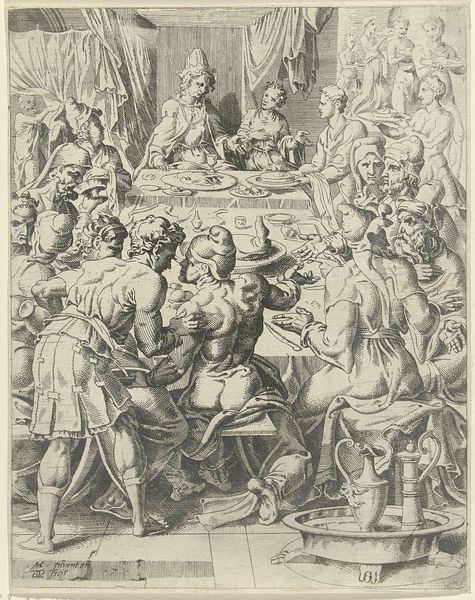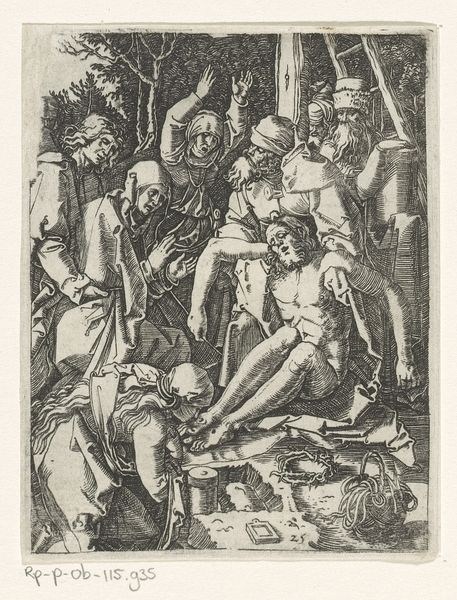
print, etching
#
narrative-art
#
baroque
# print
#
etching
#
figuration
#
history-painting
Dimensions: height 75 mm, width 79 mm
Copyright: Rijks Museum: Open Domain
This tiny illustration for Boccaccio's Decameron was made by Romeyn de Hooghe, likely in the late 17th century, using an engraving technique. The choice of engraving is key. It’s an indirect process, requiring the artist to work on a metal plate, cutting lines into its surface to hold ink. The image is built up through these precise, repeatable marks. It’s ideally suited for the mass production of images, aligning perfectly with the rise of print culture in this period. The labor involved is intense and skilled, demanding both artistic vision and technical proficiency. The result is a small artwork, but it speaks volumes about the burgeoning world of commerce and culture in which it was created. The image is multiplied and distributed, much like the stories it illustrates. This brings up interesting questions about the relationship between art, labor, and consumption, challenging our conventional notions about the distinction between fine art and craft.
Comments
No comments
Be the first to comment and join the conversation on the ultimate creative platform.
